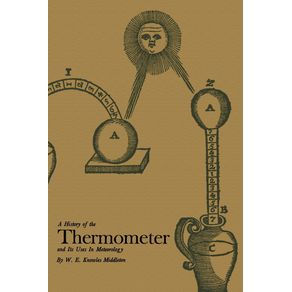| Selo | Angell Press |
|---|---|
| Edição | 0 |
| Idioma | Inglês |
| Autores | Richard B. Schlatter |
| Acabamento | Capa Comum |
| Quantidade de Páginas | 256 |
| Origem | Literatura Estrangeira |
 Dia D; Relatos, imagens e a imprensa panfletária
Dia D; Relatos, imagens e a imprensa panfletária
Editora Viseu
R$ 36,90 à vista The Apocalypse of Yajnavalkya
The Apocalypse of Yajnavalkya
Library of Cernê
R$ 171,89 ou até 3x sem juros The violence of colonial photography
The violence of colonial photography
Manchester University Press (P648)
R$ 150,79 ou até 3x sem juros Charles the Great
Charles the Great
Legare Street Press
R$ 246,29 ou até 3x sem juros Calligrammes; Poèmes De La Paix Et Da La Guerre, 1913-1916 ..
Calligrammes; Poèmes De La Paix Et Da La Guerre, 1913-1916 ..
Legare Street Press
R$ 165,17 ou até 3x sem juros La Jeunesse DHölderlin Jusquau Roman DHypérion
La Jeunesse DHölderlin Jusquau Roman DHypérion
Legare Street Press
R$ 168,93 ou até 3x sem juros Decada quarta da Asia
Decada quarta da Asia
Legare Street Press
R$ 276,39 ou até 3x sem juros Teoría General De La Urbanización, Y Aplicación De Sus Principios Y Doctrinas A La Reforma Y Ensanche De Barcelona, Vol
Teoría General De La Urbanización, Y Aplicación De Sus Principios Y Doctrinas A La Reforma Y Ensanche De Barcelona, Vol
Legare Street Press
R$ 354,24 ou até 3x sem juros Léglise Romaine En Face De La Révolution; Volume 1
Léglise Romaine En Face De La Révolution; Volume 1
Legare Street Press
R$ 284,19 ou até 3x sem juros Cartas Y Relaciones De Hernan Cortés Al Emperador Carlos V...
Cartas Y Relaciones De Hernan Cortés Al Emperador Carlos V...
Legare Street Press
R$ 247,45 ou até 3x sem juros Early Days of World History
Early Days of World History
Legend Books Sp. z o.o.
R$ 184,03 ou até 3x sem juros Notes on the Underground, new edition
Notes on the Underground, new edition
Random House
R$ 194,80 ou até 3x sem juros The Fighting Corsairs
The Fighting Corsairs
Rowman & Littlefield Publishing Group Inc
R$ 144,45 ou até 2x sem juros On the Spanish Inquisition - Imperium Press (Studies in Reaction)
On the Spanish Inquisition - Imperium Press (Studies in Reaction)
Imperium Press
R$ 176,77 ou até 3x sem juros Portuguese Empire, 1415-1808
Portuguese Empire, 1415-1808
Hopkins Fulfillment Service
R$ 273,09 ou até 3x sem juros Vozes femininas: Histórias de superação
Vozes femininas: Histórias de superação
Iventura
R$ 40,00 à vista A prosperidade da nação
A prosperidade da nação
Editora Viseu
R$ 36,90 à vista Fairies, Demons, and Nature Spirits
Fairies, Demons, and Nature Spirits
Springer Nature B.V.
R$ 338,52 ou até 3x sem juros Applied Imagination - Principles and Procedures of Creative Writing
Applied Imagination - Principles and Procedures of Creative Writing
Iyer Press
R$ 294,36 ou até 3x sem juros The violence of colonial photography
The violence of colonial photography
Manchester University Press (P648)
R$ 150,79 ou até 3x sem juros A Woman and the War
A Woman and the War
Legare Street Press
R$ 188,14 ou até 3x sem juros Kaleidoscope
Kaleidoscope
Earnshaw Books Ltd
R$ 159,88 ou até 3x sem juros Charles the Great
Charles the Great
Legare Street Press
R$ 246,29 ou até 3x sem juros La Jeunesse DHölderlin Jusquau Roman DHypérion
La Jeunesse DHölderlin Jusquau Roman DHypérion
Legare Street Press
R$ 168,93 ou até 3x sem juros Decada quarta da Asia
Decada quarta da Asia
Legare Street Press
R$ 276,39 ou até 3x sem juros Vita del cavalier Gio. Lorenzo Bernino
Vita del cavalier Gio. Lorenzo Bernino
Legare Street Press
R$ 166,45 ou até 3x sem juros Le Taoïsme Et Les Sociétés Secrètes Chinoises
Le Taoïsme Et Les Sociétés Secrètes Chinoises
Legare Street Press
R$ 176,37 ou até 3x sem juros Pandectae Justinianae In Novum Ordinem Digestae...
Pandectae Justinianae In Novum Ordinem Digestae...
Legare Street Press
R$ 394,98 ou até 3x sem juros Women Of Nazi Propaganda Love and Devotion of Women Fascinated by Hitler During the Third Reich
Women Of Nazi Propaganda Love and Devotion of Women Fascinated by Hitler During the Third Reich
Draft2Digital
R$ 90,72 à vista A History of the Thermometer and Its Use in Meteorology
A History of the Thermometer and Its Use in Meteorology
Hopkins Fulfillment Service
R$ 291,13 ou até 3x sem juros Dia D; Relatos, imagens e a imprensa panfletária
Dia D; Relatos, imagens e a imprensa panfletária
Editora Viseu
R$ 36,90 à vista Os 100 casos mais inexplicáveis da história
Os 100 casos mais inexplicáveis da história
Editora Viseu
R$ 48,90 à vista Cinema, imaginário e subjetividade: O filme vidas secas e a construção de diferentes memórias
Cinema, imaginário e subjetividade: O filme vidas secas e a construção de diferentes memórias
Editora Viseu
R$ 51,90 à vista Scrap Cities
Scrap Cities
Cathy Perlmutter
R$ 154,33 ou até 3x sem juros Fairies, Demons, and Nature Spirits
Fairies, Demons, and Nature Spirits
Springer Nature B.V.
R$ 338,52 ou até 3x sem juros Discrete Choice Analysis
Discrete Choice Analysis
Random House
R$ 419,64 ou até 3x sem juros Kaleidoscope
Kaleidoscope
Earnshaw Books Ltd
R$ 159,88 ou até 3x sem juros Gaseous Detonation Physics and Its Universal Framework Theory
Gaseous Detonation Physics and Its Universal Framework Theory
Springer Nature B.V.
R$ 350,56 ou até 3x sem juros La Jeunesse DHölderlin Jusquau Roman DHypérion
La Jeunesse DHölderlin Jusquau Roman DHypérion
Legare Street Press
R$ 168,93 ou até 3x sem juros Decada quarta da Asia
Decada quarta da Asia
Legare Street Press
R$ 276,39 ou até 3x sem juros Teoría General De La Urbanización, Y Aplicación De Sus Principios Y Doctrinas A La Reforma Y Ensanche De Barcelona, Vol
Teoría General De La Urbanización, Y Aplicación De Sus Principios Y Doctrinas A La Reforma Y Ensanche De Barcelona, Vol
Legare Street Press
R$ 354,24 ou até 3x sem juros Vita del cavalier Gio. Lorenzo Bernino
Vita del cavalier Gio. Lorenzo Bernino
Legare Street Press
R$ 166,45 ou até 3x sem juros Early Days of World History
Early Days of World History
Legend Books Sp. z o.o.
R$ 184,03 ou até 3x sem juros Writing History, Writing Trauma
Writing History, Writing Trauma
Hopkins Fulfillment Service
R$ 266,28 ou até 3x sem juros Cybernetics Moment
Cybernetics Moment
Hopkins Fulfillment Service
R$ 230,61 ou até 3x sem juros